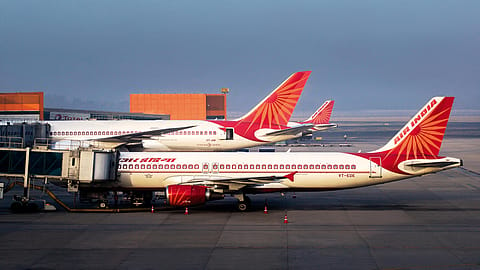Government working on turnaround plan for Air India
The state-owned carrier is saddled with a debt of over Rs 50,000 crore, a major reason why the government failed to receive any bids for a 76% stake in the airline.

In a bid to save Air India from a total collapse, the government is working on a plan to turn around the national carrier and has also asked the airline to raise funds through equity and debt, civil aviation secretary R.N. Choubey said.
“We are also allowing the airline to raise funds to meet its working capital,” he said on the sidelines of a press conference in Delhi on Thursday. “We want Air India to be competitive in the industry.”
The state-owned carrier is saddled with a debt of over Rs 50,000 crore, a major reason why the government failed to receive any bids for a 76% stake in the airline. The Ministry of Civil Aviation said that interested parties had concerns over the huge debt and the proposed 24% government stake in the new company.
The government is believed to have asked the airline to raise Rs 2,000 crore from equity and debt. The Ministry of Civil Aviation is mulling an additional bailout package of Rs 11,000 crore for the cash-strapped airline.
“We believe that this equity infusion will happen in phases. We are waiting for more details though we are happy with the government’s decision,” said a senior airline official on condition of anonymity.
The government’s turnaround plan will let the airline’s board have a greater say in terms of the managing the carrier professionally. However, the board, which was entrusted to come up with a “revival plan”, has not yet submitted any plan to turnaround the operations of the airline.
Air India has already received Rs 650 crore as capital infusion in June and another Rs 980 crore capital infusion has been approved. The airline has already received an equity infusion of Rs 27,195 crore.
Recommended Stories
However, analysts are not optimistic about the government's plans for the cash-strapped company.
“No private lender would want to lend money to Air India,” says Abhijeet Biswas, managing director and co-founder of 7i Advisors LLP, a Mumbai-based investment bank. “Unless, the government urges the public sector bank to lend money, we don't see it happening. But it is a huge risk for public sector banks to do so.”
Apart from expressing concerns over the airline’s ability to get external borrowing, experts have also criticised the move to infuse more capital in the airline. The Centre for Asia Pacific Aviation (CAPA), said earlier delaying the divestment of the national carrier would result in an additional loss of Rs 150 crore to Rs 200 crore in the next two financial years.
“In fact, it because of the billions of dollars infused to date and other perceived risks, that the government is faced with a delicate balancing act. The government needs to be prepared to take a bold decision on this for the long-term benefit of public funds,” said Kapil Kaul, CEO of CAPA, South Asia.
(INR CR)